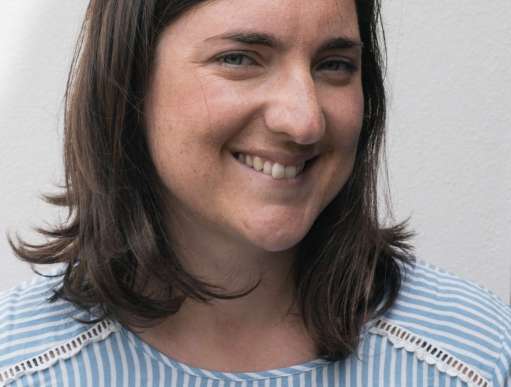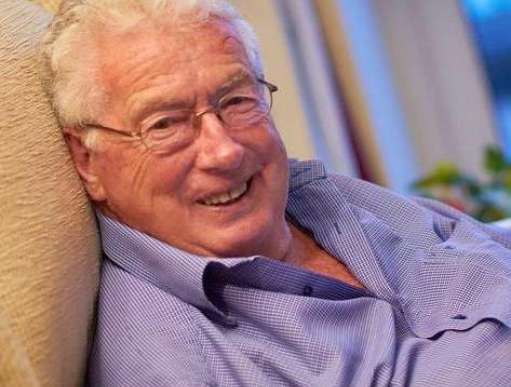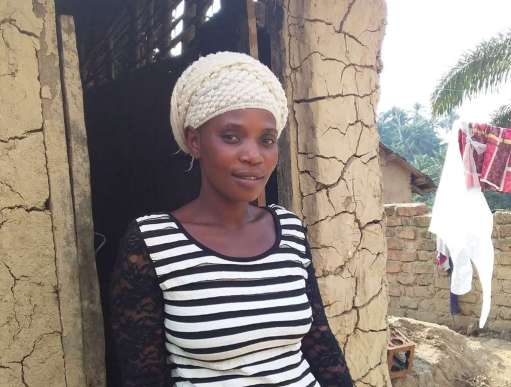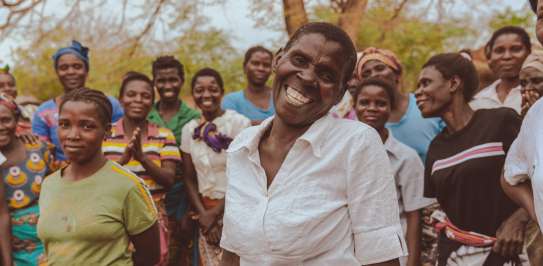Ruth Cooke joined our Christian Aid Ireland team in December 2019, having qualified as a solicitor before working in the international development sector for nine years. She lives in East Belfast with her husband, five-year-old son and greyhound, and is currently (just about) surviving her new bonus role as a home-school teacher!
As a relatively new staff member in Christian Aid Ireland (I can still get away with that over a year later, right?) I love learning about the organisation’s history – of the passion and commitment of the men and women who paved the way for us to become everything that we are today.
It reminds me of how far we’ve come and of the real change we’ve helped to make across the world, from the end of Apartheid, to the Fairtrade movement, to the many lives we have saved in responding to famine and disaster.
And in a time of such uncertainty and doubt, I find that our rich history energises me to keep going, to keep advocating for those who are most vulnerable to this new double challenge, of the coronavirus pandemic and ongoing climate crisis.

I recently heard the story of George McCullagh, who sadly passed away at 84 years of age. George was in his twenties when, in 1960, he travelled from Dublin to attend the World Council of Churches’ Youth Assembly in Lausanne, Switzerland. He, along with others from Ireland, heard first-hand accounts of the reality of extreme poverty around the world.
Image credits and information

George was so inspired by what he heard that when he returned, he began travelling the length and breadth of Ireland show 16mm films of Christian Aid’s work to churches and community groups. He persuaded churches to fundraise by holding soup lunches, collections and an annual sponsored walk in Phoenix Park. George and friends formed the ‘Dublin Christian Aid Committee’ – which later evolved and became Christian Aid Ireland.
A lot has changed over the years, not least with digital film replacing 16mm, allowing us to reach thousands more people online with news of our work. With the power of Zoom, in 2021 we’re directly connecting people at home in Ireland to our colleagues in the Democratic Republic of Congo, Nicaragua and Myanmar – something I’m sure would have seemed fantastical back in 1960.
Yes, things have changed. Progress has been made in the fight against poverty, with the UN reporting that global poverty rates have been cut by more than half since 2000.
And yet, so much remains the same, with millions of parents worldwide still struggling to put food on the table. In 2018, almost 8 per cent of the world’s workers and their families already lived on less than US$1.90 per person per day. Now, the economic fallout from the coronavirus pandemic is projected to push millions more into extreme poverty, while a worsening climate crisis wreaks further havoc on livelihoods, housing and food security.
Partnering together with Christian Aid colleagues in Kenya, Nigeria and Bangladesh, we work with those who face the challenges of poverty head-on in their own lives. People like Angela, Faith, Fatuma, Imote and Kawite, real people whose stories I’ve gotten to know over the past year.
Fatuma’s story, particularly, has stayed with me. Whilst I was obsessing over our first lockdown and how I was going to manage with a four-year-old at home all day in March, Fatuma was fleeing her home in DRC due to fighting and violence breaking out nearby. Due to local restrictions, instead of feeding her family three times a day, Fatuma could only feed them once a day.
When I hear these stories through our work, when I look at the world today and the many problems we still face, despite our progress, it is easy to feel discouraged. To feel as though each joyful victory will always be followed by a new, more oppressive challenge. Honestly, it can be tiring.
Image credits and information

When I feel like this, it helps me to remember the one thing that has never, ever changed at Christian Aid: our conviction. The same passion that drove George and his friends to work hard, sharing the stories and faces of poverty all over Ireland, is the one that I see today in our amazing supporters. It motivates them to tirelessly go above and beyond for those in need; running marathons, hosting coffee mornings, speaking in churches, jumping out of aeroplanes, abseiling down buildings, baking cakes and organising prayer events.
This is the conviction that we share, that all people are created in the image of God and deserve to live with dignity and justice.
So much has changed. Yet so much remains the same.
It was Martin Luther King who said that ‘before you finish eating breakfast in the morning, you’ve depended on more than half the world.’ And it’s true that we are more interconnected today than ever before, a fact that has both helped and hindered us as we tackle the coronavirus pandemic.
It’s also true that the solutions to our global problems still require a collective effort to tackle and solve. We still need people like George to take action and raise their voice at home for global justice. We still need empowered communities in our partner countries to be the change in their own lives, lifting themselves and others out of poverty. And we still need supporters like you, who give act and pray so that in 75 more years, we won’t be having this conversation.
So join us over the next few months as we reflect back and look forward– through the eyes of supporters, Board members, global colleagues and former staff. What do we want the world to look like? How are we going to tackle huge issues like the climate crisis?
After 75 years, we still believe all people are created in the image of God. We still believe in life before death. We still believe in real people bringing real change in the world.
